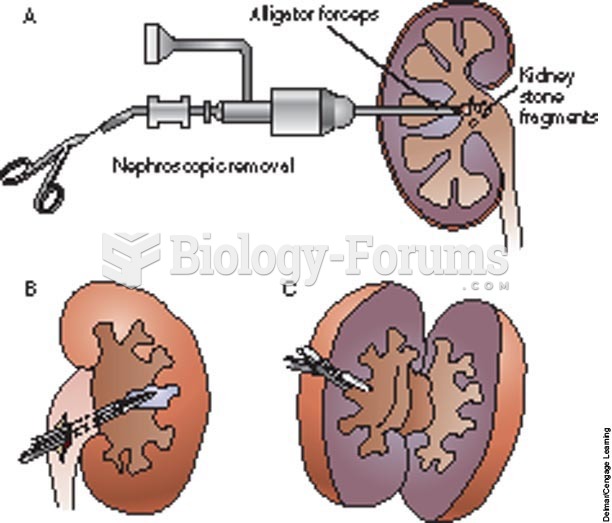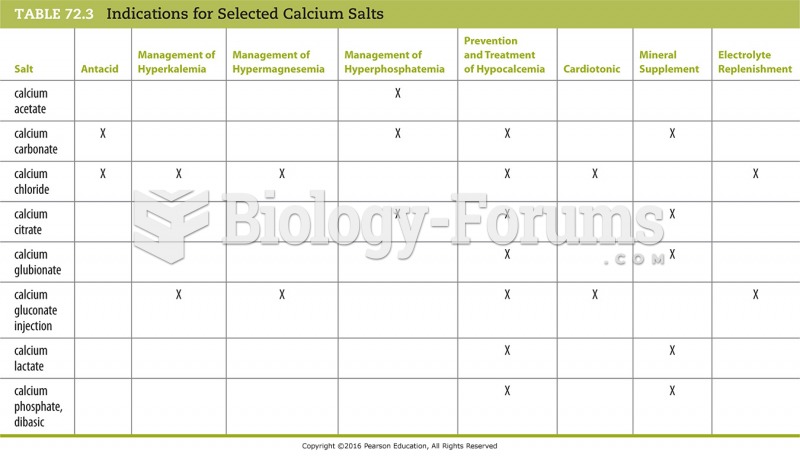|
|
|
In the United States, an estimated 50 million unnecessary antibiotics are prescribed for viral respiratory infections.
Dogs have been used in studies to detect various cancers in human subjects. They have been trained to sniff breath samples from humans that were collected by having them breathe into special tubes. These people included 55 lung cancer patients, 31 breast cancer patients, and 83 cancer-free patients. The dogs detected 54 of the 55 lung cancer patients as having cancer, detected 28 of the 31 breast cancer patients, and gave only three false-positive results (detecting cancer in people who didn't have it).
More than 2,500 barbiturates have been synthesized. At the height of their popularity, about 50 were marketed for human use.
Autoimmune diseases occur when the immune system destroys its own healthy tissues. When this occurs, white blood cells cannot distinguish between pathogens and normal cells.
Street names for barbiturates include reds, red devils, yellow jackets, blue heavens, Christmas trees, and rainbows. They are commonly referred to as downers.
 The vulva, sagittal section illustrating how the labia majora and labia minora cover and protect the
The vulva, sagittal section illustrating how the labia majora and labia minora cover and protect the
 Holding the head with one hand, apply effleurage to upper trapezius on one side using the fist. When ...
Holding the head with one hand, apply effleurage to upper trapezius on one side using the fist. When ...





